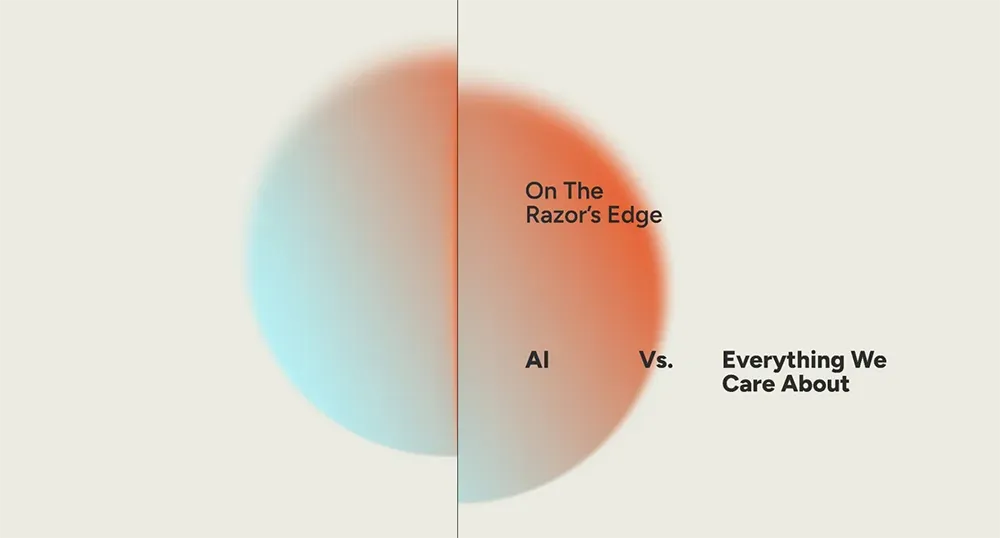AI or Just Hype? The Public Isn't Sure Yet

Generative AI has dominated headlines and tech discussions, but is it as revolutionary as its proponents claim? According to a recent study surveying six countries—Argentina, Denmark, France, Japan, the UK, and the USA—the public's engagement with AI tools like ChatGPT paints a mixed picture.
Despite the extensive media coverage and industry hype, generative AI tools have yet to become a staple in everyday life. In these countries, ChatGPT is the most recognized generative AI tool, with awareness ranging from 41% in Argentina to 61% in Denmark. However, frequent use of ChatGPT remains low. In Japan, only 1% of the population uses it daily, compared to 2% in France and the UK, and 7% in the USA. Most users have tried it only once or twice, indicating that generative AI is far from becoming part of routine internet use. Other AI tools are used even less across the population:
Younger generations are leading the charge in AI adoption. On average, 56% of 18-24-year-olds across the six countries have used ChatGPT at least once, while only 16% of those aged 55 and over have done the same. This significant age gap suggests that while younger individuals are more open to experimenting with new technologies, older generations remain cautious or indifferent.
The survey also reveals interesting trends in how people use generative AI. About 24% of respondents use AI for obtaining information, while 28% use it for creating media, including text, images, audio, code, and video. However, only 5% use generative AI to get the latest news. This could be partly because the free version of ChatGPT isn't connected to the web, limiting its ability to provide up-to-date news. Additionally, many news websites block ChatGPT, further reducing its utility for news consumption.
Public opinion on the impact of generative AI varies widely. Most respondents expect AI to have a significant impact on various sectors within the next five years. For instance, 66% believe AI will greatly affect the news media and scientific research. However, trust in different sectors to use AI responsibly is low. About half of the respondents trust scientists and healthcare professionals to use AI ethically, but less than one-third trust social media companies, politicians, and news media to do so.
This lack of trust extends to perceptions of AI-generated news. When asked about news produced mostly by AI with some human oversight, many respondents were skeptical. They expected such news to be less trustworthy (net -17%) and less transparent (net -8%) but more up-to-date (net +22%) and cheaper to produce (net +33%). Only 8% believed AI-generated news would be more worth paying for than news produced entirely by humans.
A significant portion of the public remains undecided about the overall impact of generative AI. When asked whether AI will make their lives better or worse, over half of the respondents chose neutral options or expressed uncertainty. Younger respondents and those with higher levels of formal education were generally more optimistic about AI’s potential benefits.
Interestingly, the survey also highlights a gap between perceived and actual AI use in journalism. A substantial minority of respondents believe that journalists frequently use AI for various tasks, from spellchecking and data analysis to writing headlines and creating images. However, public comfort with AI-generated news is generally higher for soft news topics like fashion and sports, and much lower for hard news topics like politics and international affairs.
As the role of generative AI in society continues to evolve, it’s clear that while there is curiosity and some optimism, there is also significant skepticism and caution. The challenge for AI developers and policymakers is to build trust and demonstrate the tangible benefits of these technologies, ensuring they are used responsibly and ethically. Will generative AI transform our lives as dramatically as the internet or social media did? The jury is still out, but one thing is certain: the conversation is just beginning.
Read the full article on the Reuters Institute.
----
💡 We're entering a world where intelligence is synthetic, reality is augmented, and the rules are being rewritten in front of our eyes.
Staying up-to-date in a fast-changing world is vital. That is why I have launched Futurwise; a personalized AI platform that transforms information chaos into strategic clarity. With one click, users can bookmark and summarize any article, report, or video in seconds, tailored to their tone, interests, and language. Visit Futurwise.com to get started for free!






